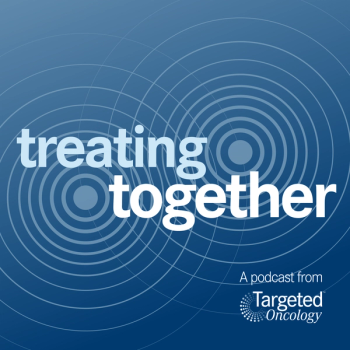
Therapies on the Horizon in EGFR Exon 20–Positive Lung Cancer
In season 2, episode 1 of Targeted Talks, Nagashree Seetharamu, MD, led a conversation with Luis E. Raez, MD, about the evolving treatment landscape for EGFR exon 20–mutated lung cancer.
In season 2, episode 1 of Targeted Talks, Nagashree Seetharamu, MD, medical oncologist, Northwell Health, led a conversation with Luis E. Raez, MD, the medical director and chief scientific officer at Memorial Cancer Institute, Memorial Health Care System and a member of the Florida Society of Clinical Oncology (FLASCO), about EGFR exon 20–mutated lung cancer.
The first component of deciding how to treat patients with genomic testing is to identify the mutation(s) present. Seetharamu and Raez both weigh in on the question of how soon and how often oncologists should test patients with lung cancer for mutations.
Once the EGFR exon 20 mutation is identified in a patient with lung cancer, one targeted therapy that is FDA-approved for the treatment of the patient subgroup is osimertinib (Tagrisso). Another agent, cetuximab (Erbitux) is being explored in the space after demonstrating promise in EGFR-mutated colorectal cancer as well as head and neck cancers. Finally, the novel EGFR inhibitor poziotinib is currently under investigation in the clinical trial setting, in addition to mobocertinib (formerly TAK-788) and TAS6417.
An ongoing need in the lung cancer field is determining how to sequence these available and potential therapies for the treatment of patients with EGFR exon 20–mutated disease.







































